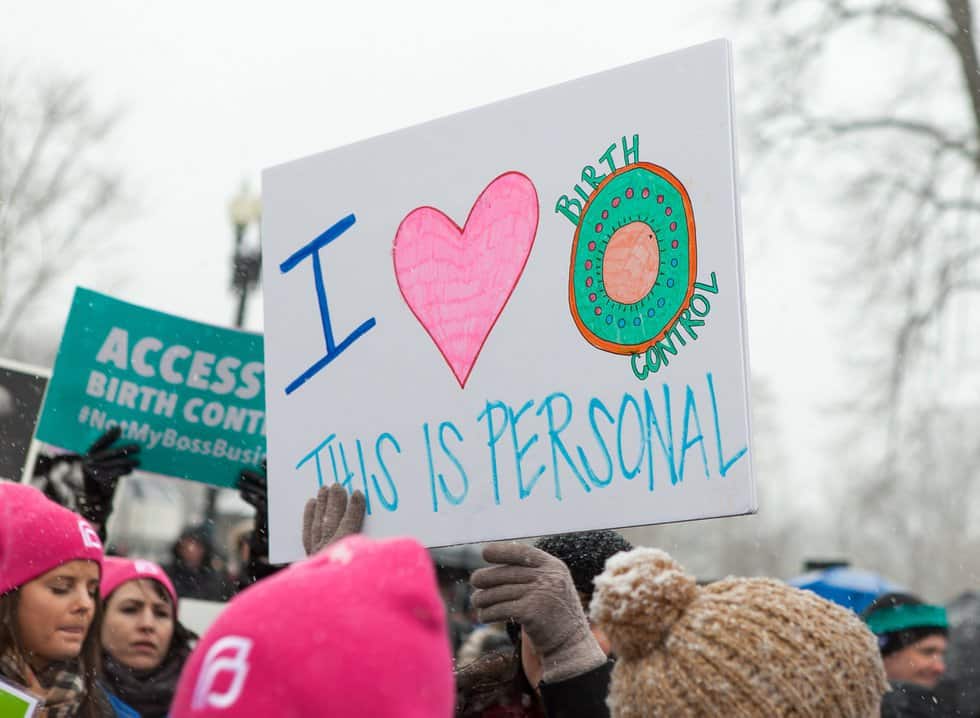Late last month CVS Caremark®, the pharmacy management arm of the national retail chain, notified more than 9,000 locations across the country that beginning April 1 Opill – currently the only birth control pill available without a prescription – would be available for purchase in their stores.
This past week, after issuing a challenge to healthcare providers in the commonwealth to include Opill in their drug plans, Governor Shapiro announced that both CVS and Geisinger insurance would provide prescription drug coverage for this non-prescription over the counter (OTC) birth control pill to everyone in the commonwealth that’s insured through their companies.
With this executive announcement, Pennsylvania joins a handful of other states authorizing insurers regulated by state law to pay for OTC contraception. The same day, April 10, the federal government announced that Medicaid would likewise pay for the newly approved medication with one caveat, Medicaid patients would still need to contact their healthcare provider and get a prescription.
Opill, first approved for prescription use in 1973, is a progestin-only hormone form of oral birth control. Studies show that the drug has a 98% efficacy rate, if taken as directed. While neither the drug nor OTC birth control are new ideas – and more than a hundred other nations offer non-prescription contraception pills already – in the U.S. Opill didn’t receive FDA approval until this past July, with the pills coming on the market just days ago.
Adam Hosey, Director of Public Affairs at Planned Parenthood Pennsylvania Advocates, welcomes the news that Pennsylvania people in need of reproductive healthcare will now have access to Opill, but hopes that one day it will become universal to persons who self-select their own medication without first consulting a health care provider.
“We have precedent after covid, our vaccines did it. When you got your vaccine, you wouldn’t necessarily have to file paperwork with the insurance company, you’d just show them your card and it gets covered,” he said. “And a lot more – flu shots are like that these days too.”
READ: Congressional Democrats Renew Push to Protect Access to Birth Control
During an April 3rd visit with physicians and Planned Parenthood leadership, Governor Shapiro, while not specific, signaled the beginning of expanded reproductive healthcare access. “What we’re trying to do is cut through that red tape, cut through the BS and get stuff done.”
The governor stressed that birth control should be available to people that decide, on their own, to use it. “Women determine what they need, and it [shouldn’t] cost them anything or it costs them, you know, very little,” he said.
Tara Murtha, Director of Strategic Communications at the Women’s Law Project, emphasized how difficult it is for many people who want birth control to get it. She sees Opill as a way forward. “Eighty-eight percent of young people surveyed said they didn’t have adequate access to contraception … More than half of those on hormonal contraception in particular.” Prescriptions expire. One of the many reasons prescription birth control pills become unobtainable, an obstacle not shared by OTC medications.
When it comes to the federal requirement that Medicaid recipients first get a prescription for the OTC birth control – one of Gov. Shapiro’s very big hoops – Hosey again points out that vaccines, not just Covid19, but flu shots and many others, do not require prior approval from a healthcare provider. Hosey hopes for that same sort of universal availability when discussing other essentials, including birth control, “In Pennsylvania, we’re certainly looking for that to happen as well.”
During his discussion at Planned Parenthood, Gov. Shapiro emphasized that the people who bear the greatest responsibility for reproductive health are given the least amount of say in the matter. “That justification piece infuriates me and I’m sure it infuriates women all across Pennsylvania. If I’ve got allergies and I want to go to the store and get an allergy pill, I shouldn’t have to justify that,” he said. “We are talking about needs that women have, and they should be able to get that [need met].”
The governor pushed back on illegitimate barriers to reproductive rights. “I get angry when opponents of freedom – they talk a good game about freedom – but they’re constantly trying to restrict what women can do with their bodies.”
READ: The Game-Changing Promise of an OTC Birth Control Pill
Hosey agrees, and he’d like to codify the governor’s actions. Fearful of next steps taken by the Supreme Court of the United States, Hosey notes that executive actions can be undone. “I do think they are coming for birth control. In the supreme court argument, the most conservative justices were signaling to the folks who brought the mifepristone lawsuit, ‘hey, this is how you can go after birth control.’” He applauds the governor, but wants to go further, “This is a really good step, but we need to continue to expand access with Representative Krueger’s bill,” referring to a bill simply titled, “Expanding Access to Contraceptives.”
HB 1140 – co-sponsored by Bucks County State Rep. Tim Brennan who has been onboard with the legislation since the day it was introduced – is designed to guarantee reproductive healthcare access. “Access to health care is inextricably linked to economic mobility, and basic preventative care like birth control should not be a luxury that is only available to some.”
At this point, HB 1140 – like executive actions – would apply to private insurers, but would not remove all the obstacles for the 995,446 female Pennsylvanians, age 12 to 50, that the Pennsylvania Department of Human Services (DHS) says are receiving healthcare through Medicaid. Those individuals must still get a prescription, for the medicine that is no longer prescribed to individuals not receiving publicly funded healthcare.
In addition to inconveniencing those seeking Opill, forcing Medicaid recipients to see a healthcare provider will increase the price to the taxpayers who fund the medication. Because the drug has been on the market less than three weeks, it’s not possible to know the extent of the cost.
Ali Fogarty, Communications Director at the DHS, explained that Pennsylvania’s Medical Assistance will pay for the office visit required to get Opill. “Medicaid does cover services rendered at walk-in clinics and urgent cares as long as a person goes to one that is in-network for their managed care organization. People can call the member services number on the back of their card if they need help finding an in-network location.”
Even with Opill’s new designation, low-income Pennsylvanians will not see much difference in their ability to access birth control. They will not have the same opportunities Gov. Shapiro negotiated for privately insured individuals: “birth control, over the counter without having to jump through a lot of hoops to get it.”







